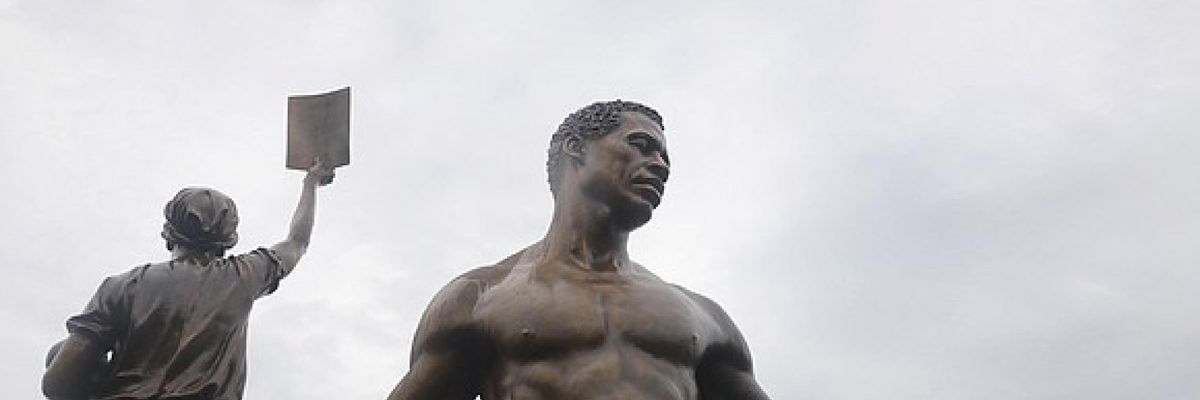Nearly a decade in the works, the monument project began as part of a 150th anniversary commemoration of the Proclamation by Virginia's Dr. Martin Luther King Jr. Memorial Commission. Delayed by the pandemic, its appearance after the murder of George Floyd, the rise of BLM and the removal of so many Confederate statues is "poetic justice," said state Sen. and Commission head Jennifer McClellan. So is its location, she noted. "Virginia was the birthplace of American democracy," whose leaders promised life, liberty and the pursuit of happiness even as they owned people they deemed three-fifths human. "It was also the birthplace of slavery and all the horrors that came with it," with Richmond "at the heart of that." Along with the figures, the monument highlights the name, image and brief bio of 10 African-American activists, five up to 1865 and five from 1866 to 1970. Except for one Union spy, the early exemplars were slaves, including Dred Scott and Nat Turner; after Emancipation, they are educators, politicians, journalists and women's rights activists, all now memorialized about two miles from where Lee once reigned. In an unhelpfully facile mantra, some media portrayed their recognition now as a moment of "triumph over trauma." Not quite - as was often noted, justice would be George Floyd alive - but still, it's a pained start.
"Our public memorials are symbols of who we are and what we value," said Gov. Ralph Northam at last week's unveiling, saying the statues represent "a Virginia that tells the truth of our past so we can build a better future together." Many wept at a ceremony that offered its own poignant symbols of resilience: Morning rain gave way to glimmers of sun as the cloth was pulled off and the drums of the Elegba Folklore Society rang out. Mayor Levar Stoney likewise referenced both past and future, calling what was once the capital of the Confederacy "a capital of compassion...opportunity.. hope," a city "the enslaved built (with) their hands" that "we are rebuilding with our hearts." Historian and keynote speaker Dr. Lauranett Lee offered a reality check to such optimism, cautioning that many today still "live with fear and want." "How many of us still do not have that freedom?" she asked of "those of us who others consider marginal. "We, too, deserve all that America has promised." "Be concerned about the entire history," also warned MLK Commission member Ronald Carey, who watched the unveiling with tears in his eyes. "There are those of us here who are related in more ways than one." Still, online, civil rights attorney Benjamin Crump hailed the first state-funded tribute to emancipation, and those "whose lives represent the struggle for freedom." From one moved reader, "The world gets better." Very and too rarely, but yes.
